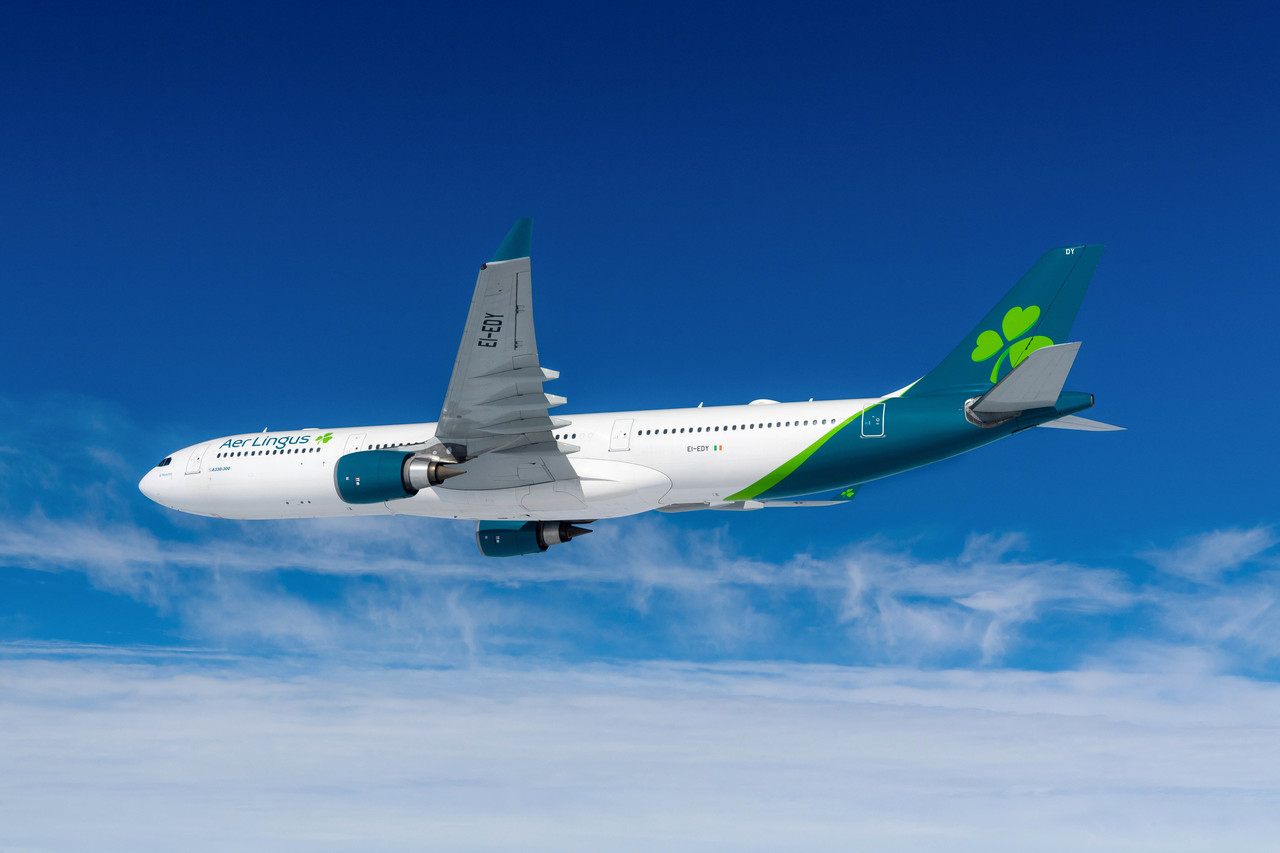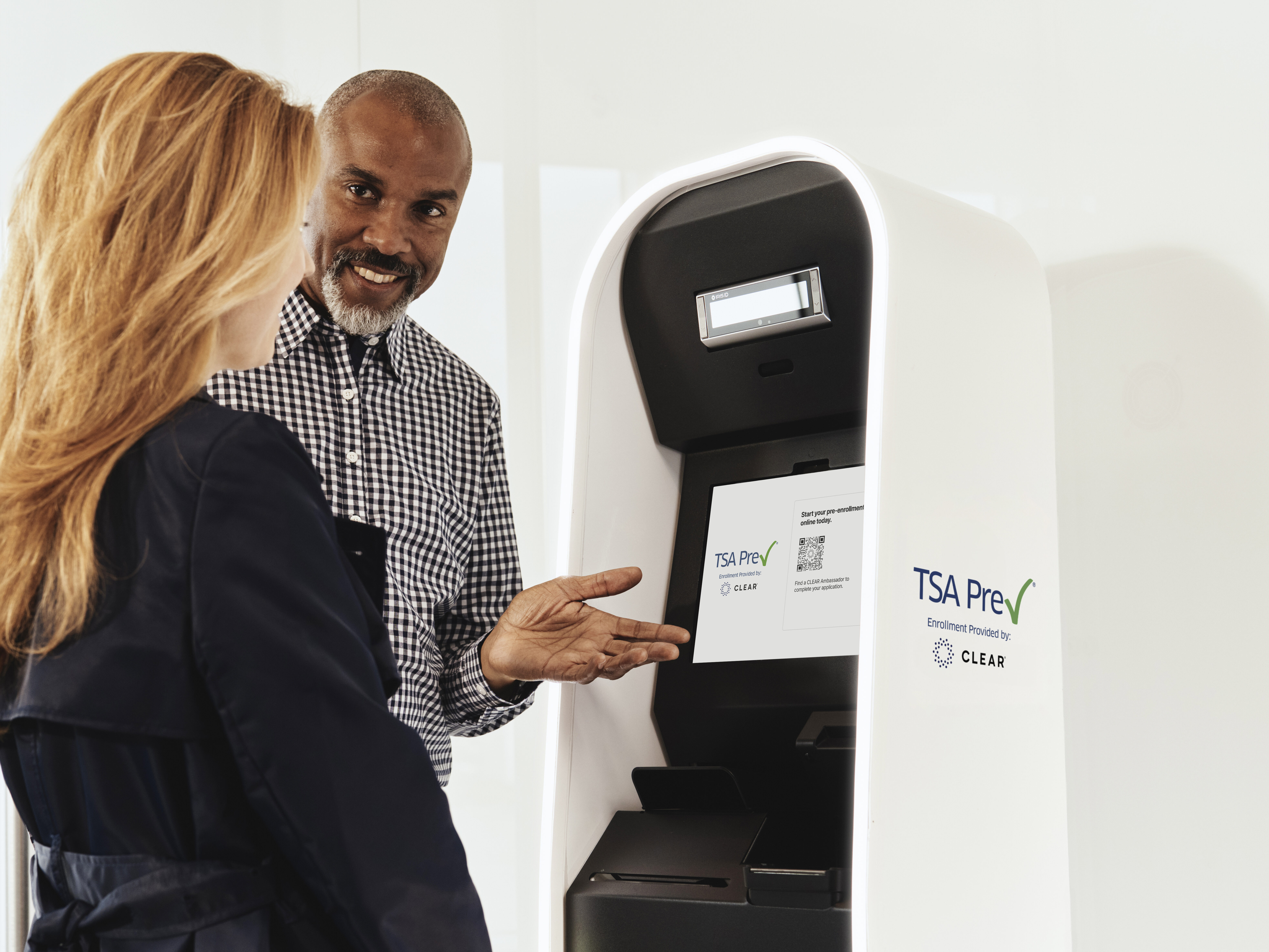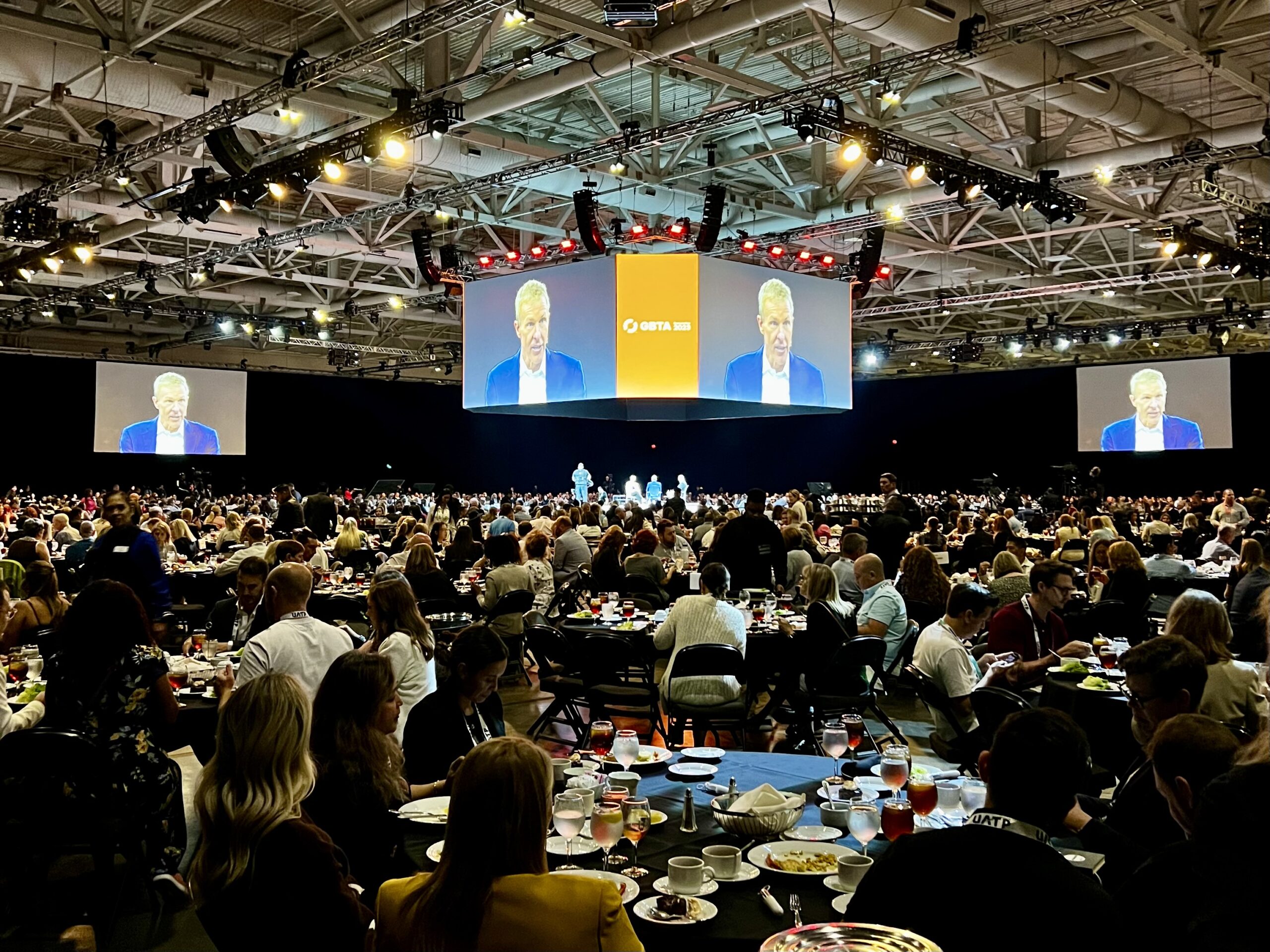Emirates Launches First A380 Flight Powered by 100 Percent Sustainable Aviation Fuel
The Gulf giant hailed the flight as a significant stride towards industry-wide adoption
by Samir Kadri
November 28, 2023
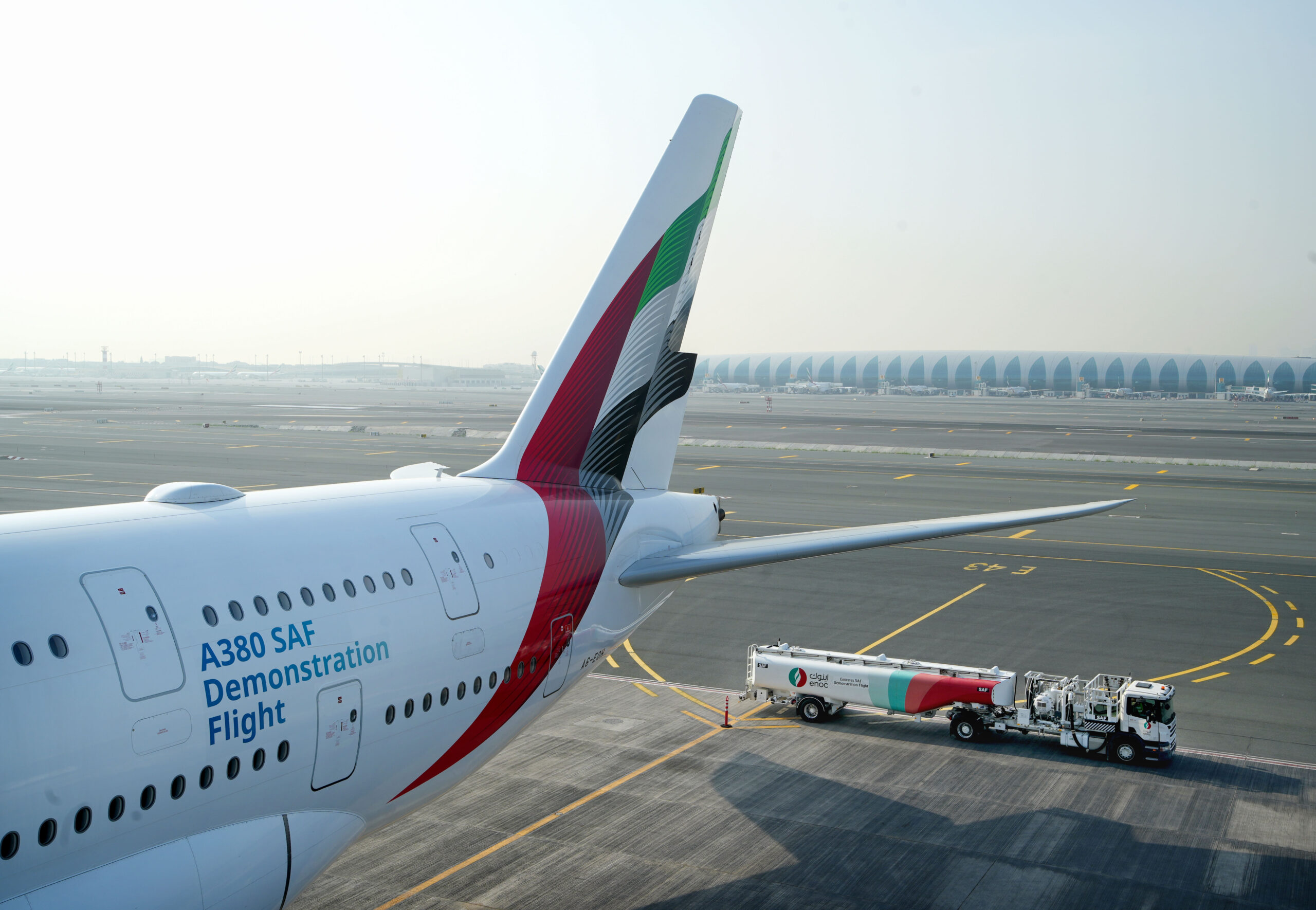
Photo: Courtesy of Emirates
Emirates has successfully completed a demonstration flight using 100 percent sustainable aviation fuel (SAF), powering one of the four engines of an Airbus A380.
The flight took off on November 22 from Dubai International Airport (DXB), resulting from a partnership between SAF provider Neste, engine manufacturer Engine Alliance, aircraft producer Airbus, and renewable fuels company Virent.
Using 100 percent SAF can reduce a plane’s carbon emissions by up to 85 percent compared to standard jet fuel, but regulatory approval is still pending. Currently, SAF is capped at a 50 percent limit for commercial flights.
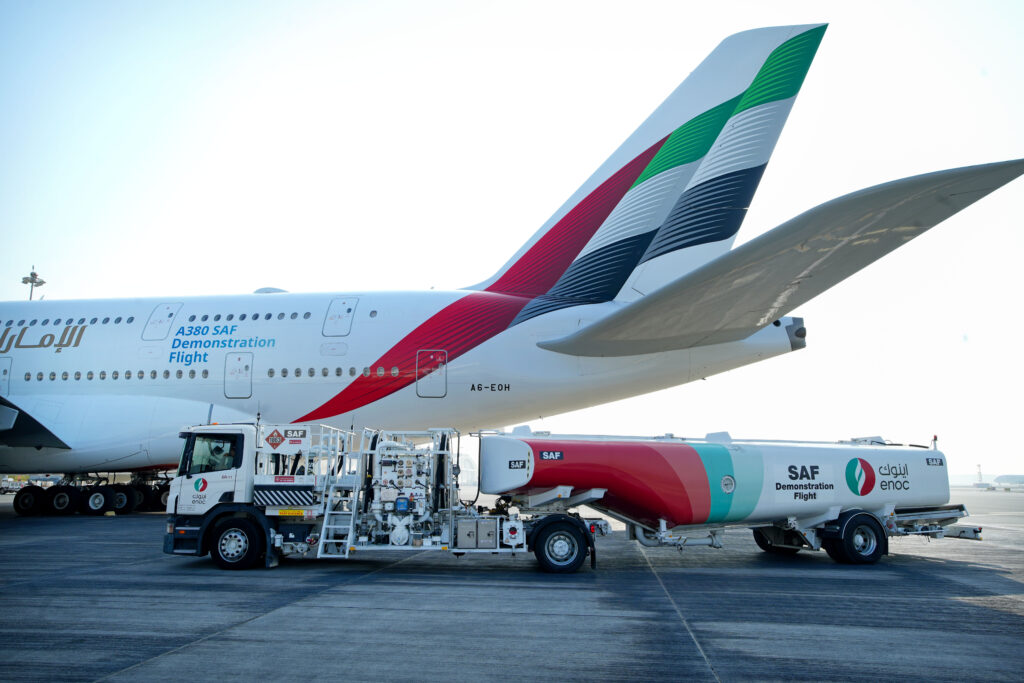
Photo: Courtesy of Emirates
Emirates hopes this ‘landmark’ demonstration flight will prove to regulators that 100 percent SAF is a safe and reliable option and encourage them to approve it.
The SAF was used in one Engine Alliance GP7200 engine, while the other three ran on conventional jet fuel. SAF also fueled the aircraft’s PW980 auxiliary power unit.
First A380 Powered by SAF
“Emirates is the first passenger airline in the world to operate an A380 with 100 percent drop-in SAF powering one of four Engine Alliance GP7200 engines,” said Adel Al Redha, Chief Operating Officer at Emirates. “This is another proud moment for Emirates and our partners, as we put words into action with the research into and the trialing of higher concentrations of SAF to eventually lead to industry adoption of 100 percent SAF flying.
“The growing global demand for lower-emission jet fuel alternatives is there, and the work of producers and suppliers to commercialize SAF and make it available will be critical in the coming years to help Emirates and the wider industry advance our path to lower carbon emissions.”
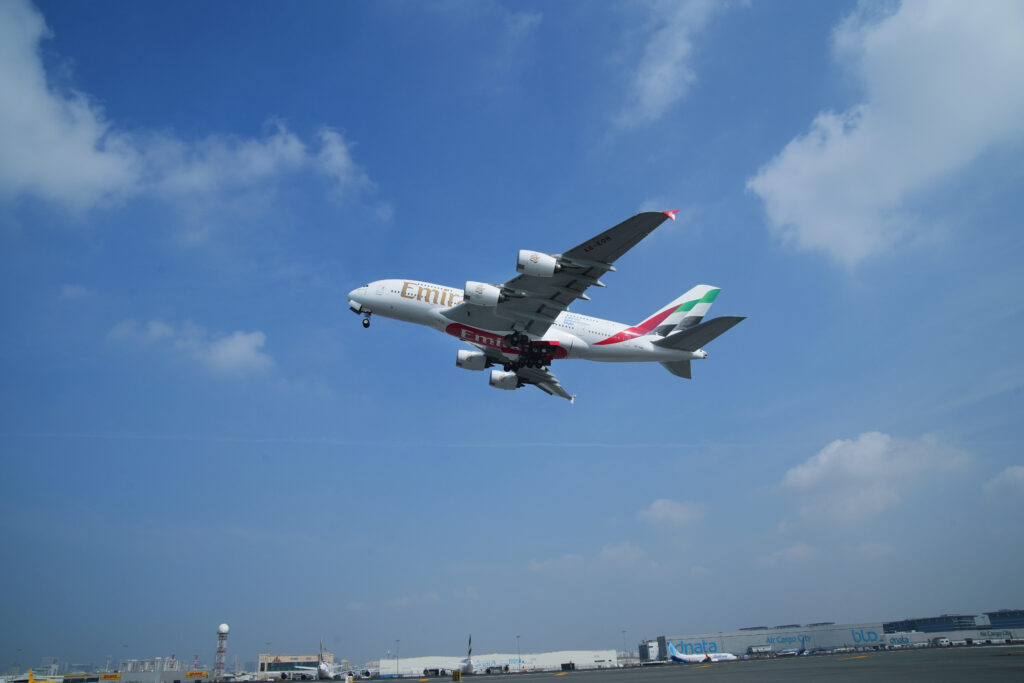
Photo: Courtesy of Emirates
Sustainable aviation fuel that is 100 percent renewable has the potential to reduce carbon emissions in the aviation industry significantly. Currently, the supply of such fuel is limited, and technology is not available to produce it at scale. The fuel is derived from waste processing, leftover cooking oils, plant pulp, sustainable bio-fuels, and synthesized carbon dioxide byproducts.
Despite the challenges, the demand for SAF, like 100 SAF, is increasing. The International Air Transport Association (IATA) predicts that airlines will need 120 billion gallons of SAF annually to meet their environmental goals. However, the global production of SAF in 2022 was only 75 million gallons.
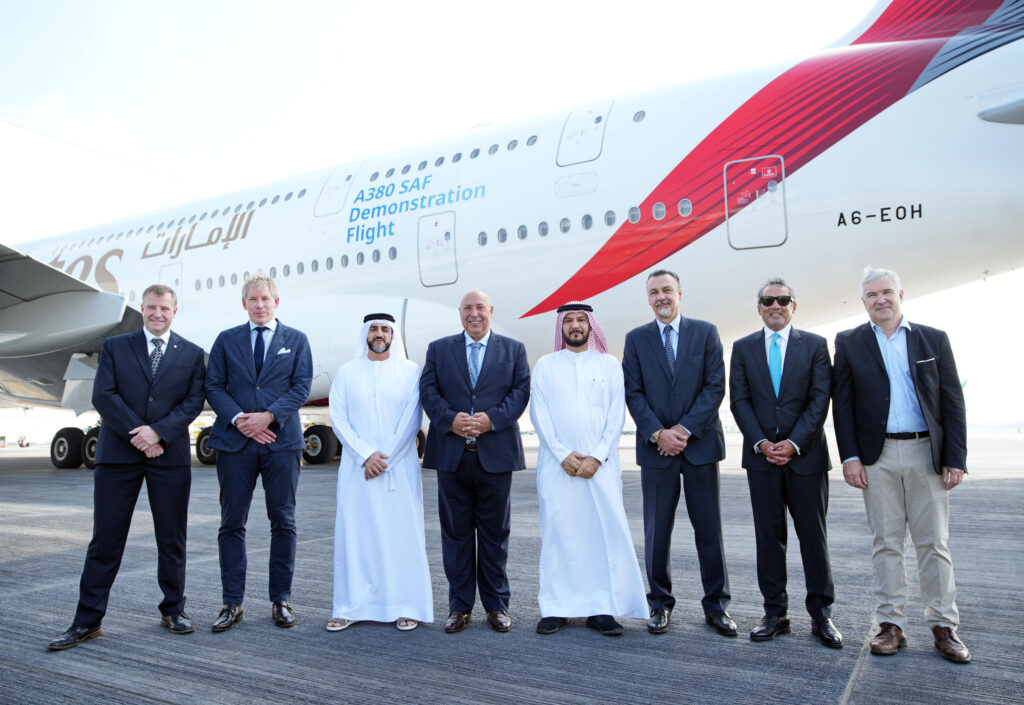
Photo: Courtesy of Emirates
Neste, the Finnish SAF provider involved in the Emirates test flight last Wednesday, plans to increase its global SAF production from 1 million tons to 1.5 million tons in 2024 and 2.2 million tons by 2026.
Although SAF currently accounts for less than 1 percent of aviation fuel use, airlines are preparing to use increasing amounts of SAF in the coming years. The industry’s target of achieving net-zero carbon emissions by 2050 relies on approximately 65 percent SAF usage.
“Sustainable Aviation Fuel plays a crucial role in reducing the emissions of air travel, but to fully leverage its decarbonization potential, we need to enable 100 percent SAF use,” said Jonathan Wood, Vice President of Commercial Management and Business Development of the Renewable Aviation business at Neste.
According to Virent’s President and General Counsel, Dave Kettner, the recent test flight demonstrated that plant-based fuel technology could meet current specifications and work perfectly in commercial airline engines. Kettner emphasized the importance of a consortium of companies, such as this group, coming together to promote the use of sustainable aviation fuel.
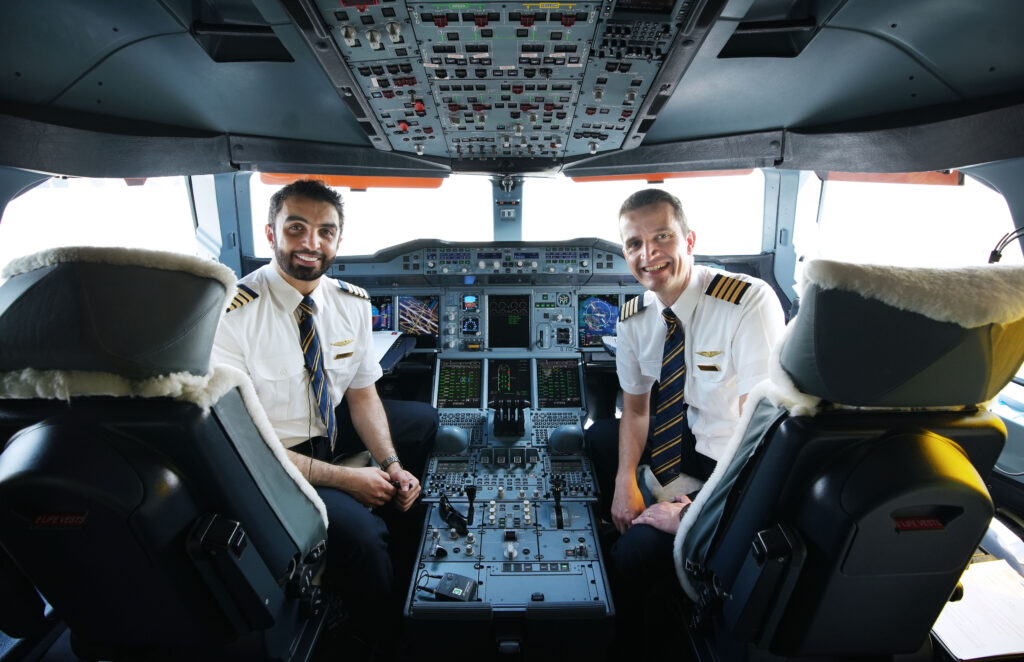
Photo: Courtesy of Emirates
Commenting on the Emirates flight, Julie Kitcher, Airbus’ Executive Vice President of Communications and Corporate Affairs, hailed it as a significant milestone, stating that it is a symbolic moment to witness the world’s largest airliner powered by an engine running on 100 percent Sustainable Aviation Fuels. She added that SAF is the most effective way to address CO2 emissions in the aviation industry today and that they are increasingly being supported by the world’s leading airlines.
Kitcher also pointed out that SAF is vital to meeting the sector’s net-zero emissions target in 2050, but it needs the backing of the whole industry. At Airbus, they are working towards making all their aircraft 100 percent SAF-capable by 2030. They are also collaborating with partners to expand the global SAF market in the coming years. Airbus’s purpose is to pioneer sustainable aerospace for a safe and united world, and through their partnership with Emirates, they are matching their ambition with action.
Virgin Atlantic Flies to New York on SAF
Virgin Atlantic also made headlines by joining the race to becoming more sustainable by operating a London-to-New York flight powered entirely by SAF. The airline’s founder, Sir Richard Branson, was onboard the aircraft.
The flight was operated by a Virgin Boeing 787-9 Dreamliner, powered by Rolls-Royce Trent 1000 engines, making it the first commercial airliner to complete a long-haul flight powered entirely by the sustainable fuel alternative.
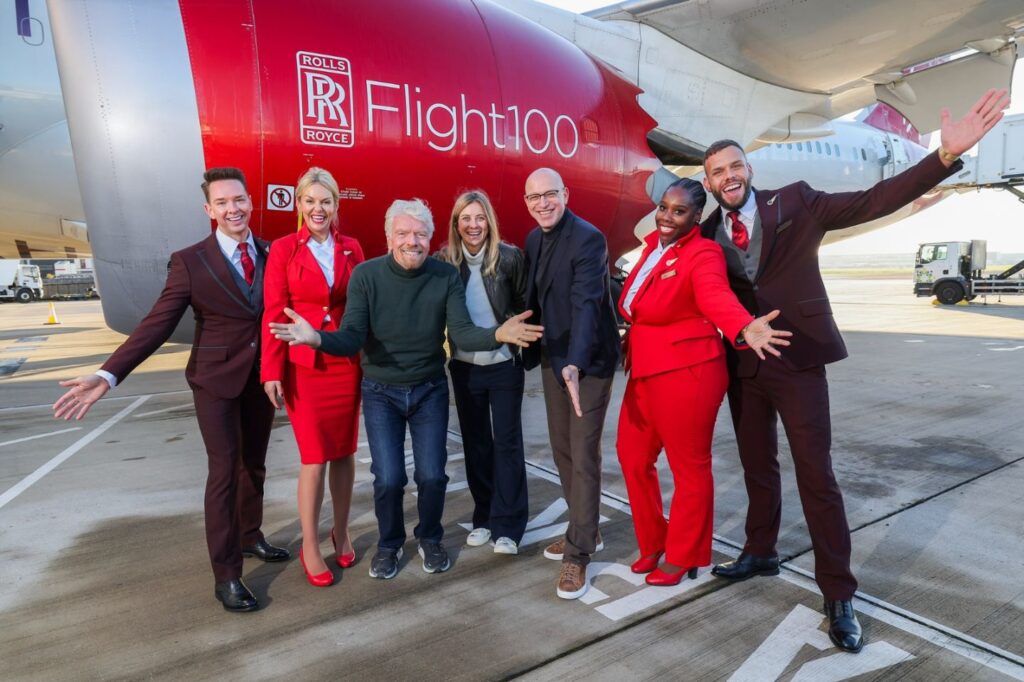
Photo: Courtesy of Virgin
Although the flight had no paying passengers or cargo, it represents a significant step forward in the aviation industry’s efforts towards sustainability.
The aircraft will return to London using traditional jet fuel, underscoring the challenges of scaling up production of SAF. At present, SAF accounts for less than 0.1% of the global jet fuel used and costs three to five times more than regular jet fuel.
